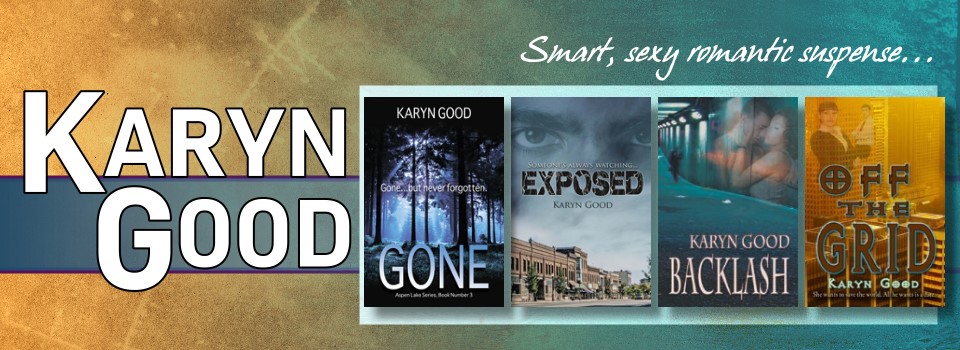One way of getting to know your characters is, of course, the character interview. Besides being useful it has the added benefit of being tons of wicked fun. Not only are you learning things about your character’s thoughts by being deep in their point of view, it’s a excellent opportunity to torture them a bit.
I happened across this interview I did a while back involving my hero from my upcoming release, BACKLASH. It was part of a series of exercises I participated in with my writing group. It was so much fun and since my scheduled interviewee is working through computer problems I thought I’d post this instead.
For the purposes of this exercise we were to chose a point of view character and answer the following: Why don’t you start by telling us your name and if you go by any nicknames? Then, if you could tell us, do you have a birthmark and if so, where? Any scars we should know about? How did you get them?
So without further ado, meet Chase who’s about to be interviewed by select members of the Saskatchewan Romance Writers via computer. FYI, he looks a lot like Jensen Ackles.
 Chase stood in front of the stark white door with his hand resting on the doorknob. He turned to watch the English guy make his way down the hallway. The poor guy had the look of a man pecked to death by ducks. The only other guy he’d seen had rushed past him looking a little green around the edges. He pitied some poor woman named Janet.
Chase stood in front of the stark white door with his hand resting on the doorknob. He turned to watch the English guy make his way down the hallway. The poor guy had the look of a man pecked to death by ducks. The only other guy he’d seen had rushed past him looking a little green around the edges. He pitied some poor woman named Janet.
He’d been ordered to put in an appearance. Answer a few questions. They had better get what they wanted the first time around because his plans did not include a return visit. A guy had to draw the line somewhere. He pulled a worn photo out of his back pocket, ran a thumb over the picture then carefully slid it back into place.
He opened the door and stepped into the room. Not a soul in sight. He scanned the room for cameras or two-way mirrors and found nothing. The room boasted one standard issue office chair, an ordinary metal desk and a computer. He eyed the screen. Blank. His spidey sense started to tingle.
“Please, sit down.”
Okay, disembodied computer voice. That wasn’t weird at all. He walked over and planted his butt on the hard plastic seat. He leaned back, placed an arm along the back of the chair, and rested one booted foot across a knee. Never let them see you sweat. This wasn’t so bad, really. He could deal with it. He’d handled worse.
“For the purposes of this interview we will be communicating via computer. We will ask you questions and you will answer to the best of your ability. Your answers will be evaluated and ranked for optimum effectiveness. Failure to answer truthfully will lead to complications in your storyline and may result in a state of celibacy for the hero, which in this case would be you.” Static. “So, are we clear on the rules?”
“Perfectly.” Great, a computer was in charge of his sex life. He straightened up a little and shifted his gaze slightly to the right, in the direction of the door. A little red light blinked on the small security panel beside the door.
“It’s locked.”
No way out. He ground his back molars together. He knew he should have worn his uniform and his gun. “Let’s get this over with.”
“By all means, let’s.” The computer sighed and a small sliver of satisfaction snaked up his spine. “State your name for the record please.”
“Constable Chase Porter.”
“Well, Constable Porter, any nicknames we should be aware of?”
“No.” One question down.
“How odd.” Something squawked in the background. Someone muttered something about marketability. “Shh,” the computer voice hissed. “Do you have any interesting birthmarks?”
“No.” Birthmarks? He shifted his weight and the chair creaked. Maybe he was being punked?
“How long have you been a police officer?”
“About six years.” He didn’t trust the question, it was too simple. He glared at the computer.
“Do you enjoy your work?”
“Yeah, I guess so.” Did he enjoy his work? What the hell kind of question was that? It wasn’t like he could imagine doing anything else.
“Care to elaborate? And please be advised you’ve used up your quota of one word answers.”
“The job has its moments. I like to think I make a difference.” He zeroed in on a crack snaking up the wall behind the computer and focused all his energy on the narrow line. He could do this. He could answer a simple question without ending up in a blood soaked alley.
“How about scars?”
“What?”
“Do you have any scars? Surely the question is self-explanatory?”
He frowned, what happened to questions like on a scale of one to ten, one being lowest suck factor and ten being highest suck factor, how would you rate this interview?
“Do bullet holes count?” Maybe if he shocked them all the way down to their sensible shoes they’d cancel the rest of the interview.
“Thankfully something we can work with. They sure do, hon. Feel free to elaborate.”
He rubbed his thigh. No. Way. In. Hell.
What’s the weidest or most inappropriate question you’ve been asked in an interview?


